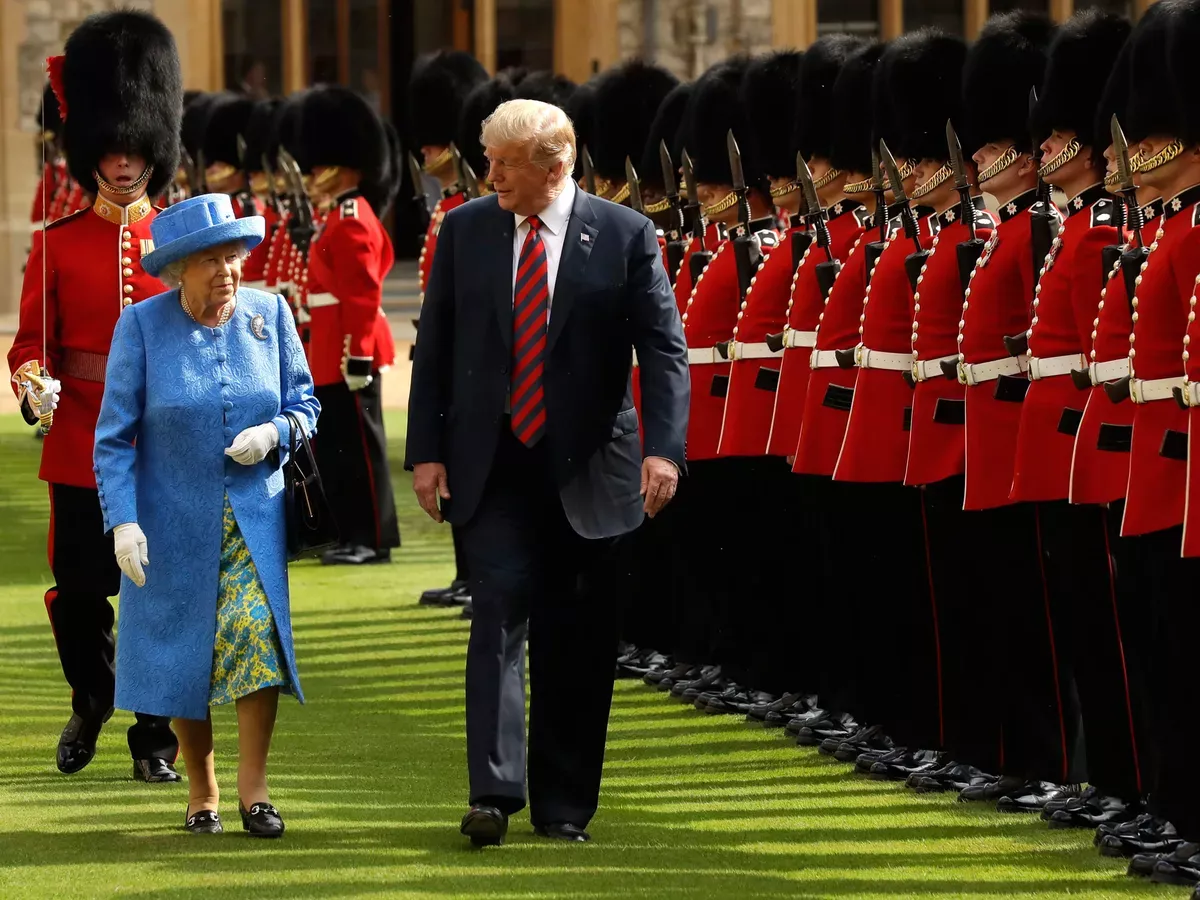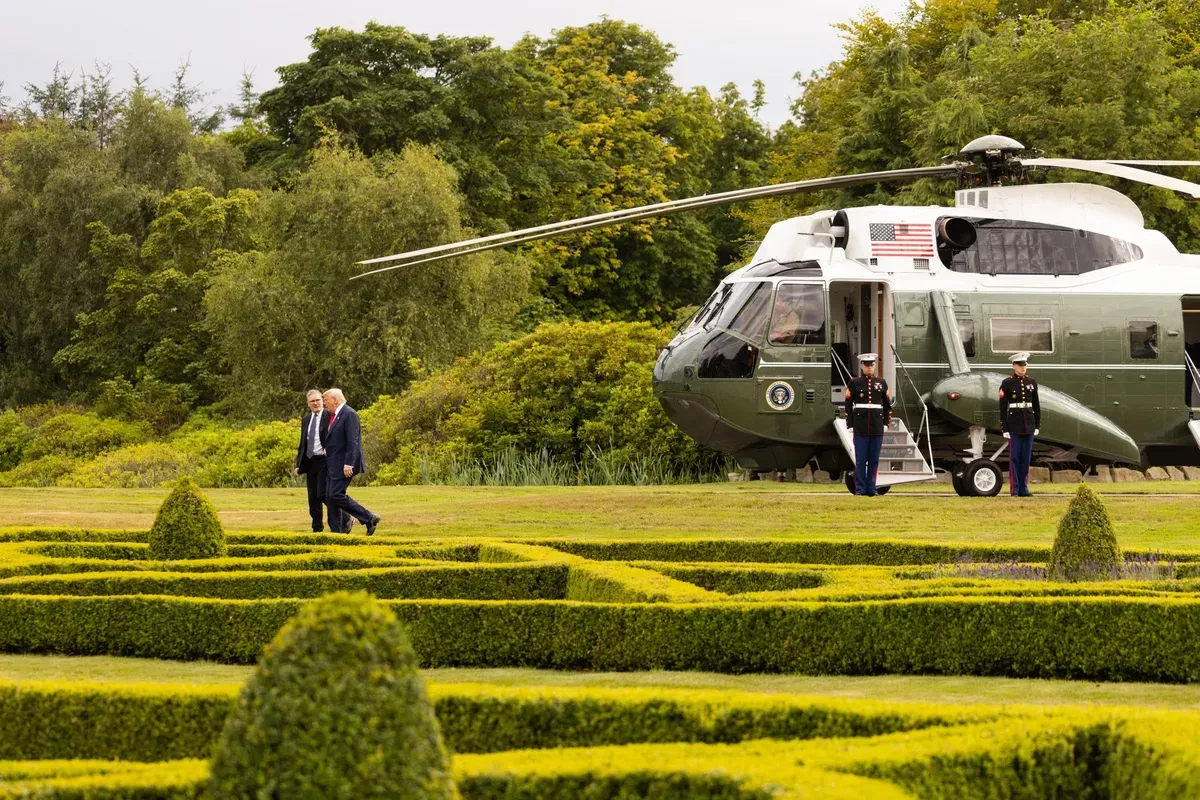Keir Starmer's charm offensive: Using Royal family to strengthen ties with Trump
Donald Trump’s upcoming state visit to the UK, fast-tracked for this week, reveals the intricacies of modern diplomacy, where political leaders use cultural icons and symbolic gestures to strengthen ties. This trip, his second to Britain in just two months, is framed by both political motives and the personal affinity the president has for the British monarchy.
The stage was set during the first phone call between Trump and British Prime Minister Keir Starmer last year. Within minutes, Trump declared his admiration for the UK: “I love the UK, I love the Royal Family, I love the King.”
According to Bloomberg, this enthusiasm has been used strategically by the British government, especially as Starmer navigates a period of political turbulence, most recently exacerbated by the scandal surrounding former UK ambassador to Washington, Peter Mandelson, and his connections to deceased convicted pedophile Jeffrey Epstein.
Starmer’s charm offensive is clear: the UK wants to leverage Trump’s fondness for the monarchy to maintain its strong diplomatic ties, particularly given the unpredictability of Trump’s administration. In February, Starmer presented Trump with a hand-signed letter from King Charles III inviting him for a "really special, unprecedented" second state visit to the UK. Trump, clearly delighted, responded, "That’s a great, great honor."
Royal biographer Hugo Vickers noted the political significance of the visit. He suggested that Starmer was playing to Trump’s “Achilles heel,” using King Charles as a diplomatic tool to bolster UK-US relations.
"The reason there’s a second state visit is because Starmer wants it for political reasons, so he’s using the King as his diplomat," said Vickers.
The visit, set to take place at Windsor Castle, marks a departure from the traditional venue of Buckingham Palace. While renovations are cited as the official reason, this move also allows Trump to avoid confrontations with protesters who have voiced opposition to his MAGA (Make America Great Again) policies.
The setting offers a controlled environment, with Trump and the First Lady, Melania Trump, expected to meet King Charles and Queen Camilla in the scenic grounds of Windsor before a carriage procession through the estate with the Prince and Princess of Wales.
This state visit is symbolic for another reason: it marks Trump as the first US president to have two official state visits to the UK, joining the ranks of Barack Obama and George W. Bush. After the ceremony, Trump will join the Royal Family for a private lunch, followed by a visit to St. George’s Chapel to lay a wreath at the tomb of the late Queen Elizabeth II.

The visit is more than ceremonial, with a packed agenda that includes a bilateral meeting with Starmer at Chequers, the Prime Minister’s country residence. The leaders are expected to view Winston Churchill’s archives and sign a major US-UK tech partnership, covering sectors like artificial intelligence, data centers, and nuclear technology. High-profile figures, including Sam Altman of OpenAI and Jensen Huang of Nvidia, are slated to attend, underscoring the importance of the UK’s business relationships with the US.
The evening will culminate in a lavish banquet of around 150 guests, with both Trump and King Charles delivering speeches. Yet, one notable deviation from tradition is that Trump will not address the UK Parliament. This absence conveniently avoids the risk of mass protests and a potential clash over issues like Israel, free speech, and trade, where Trump’s positions often differ sharply from the UK’s.

Despite the diplomatic maneuvering, potential friction remains. One area of concern is Starmer’s pledge to recognize Palestine if Israel does not commit to a ceasefire in Gaza. Starmer is expected to announce his decision around the UN General Assembly in New York, but UK officials are keen to avoid any confrontation with Trump on this issue before he departs.
There are also personal and political tensions to navigate. Starmer recently dismissed Mandelson over his ties to Epstein, and some UK officials fear the decision may highlight uncomfortable parallels with Trump’s own associations with the disgraced financier.
The Royal Family, too, is not immune to disagreements with Trump. King Charles has long been an advocate for climate change action, and while he avoided confronting Trump’s rhetoric, their ideological differences could surface during the visit. Nevertheless, royal biographer Hugo Vickers sees the King’s role as one of subtle diplomacy, noting that the late Queen Elizabeth II’s approach was always to “smooth things down” rather than stir tensions.
Despite these complexities, the visit will likely strengthen the UK’s relationship with the US, particularly after the UK became the first country to sign a trade agreement with the US that provided more favorable terms than those faced by other allies. Moreover, Starmer’s efforts, alongside NATO leaders like Mark Rutte and Finland’s Alexander Stubb, have reportedly helped soften Trump’s stance toward Ukraine, where his previous comments had appeared more aligned with Russian President Vladimir Putin than with European allies.
In the end, this visit represents more than just a diplomatic event; it is a carefully choreographed effort by the UK government to secure its political and economic interests with a volatile leader. While Starmer has found a powerful ally in Trump’s admiration for the monarchy, the deeper ideological differences between the two could still lead to moments of awkward diplomacy during the visit’s conclusion.
As the state visit unfolds, the world will be watching, not just for the pomp and ceremony, but for the subtle shifts in international diplomacy that could emerge from this high-profile meeting between two very different leaders.
By Sabina Mammadli








